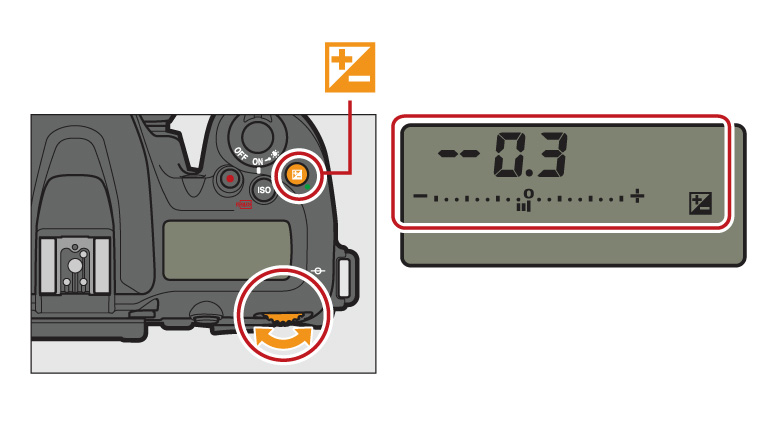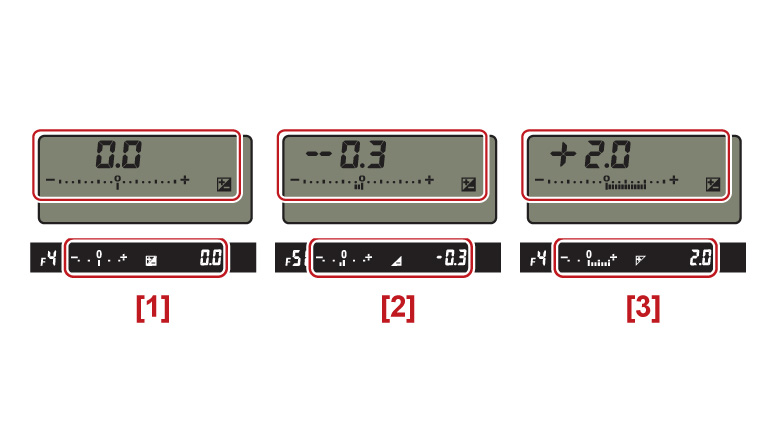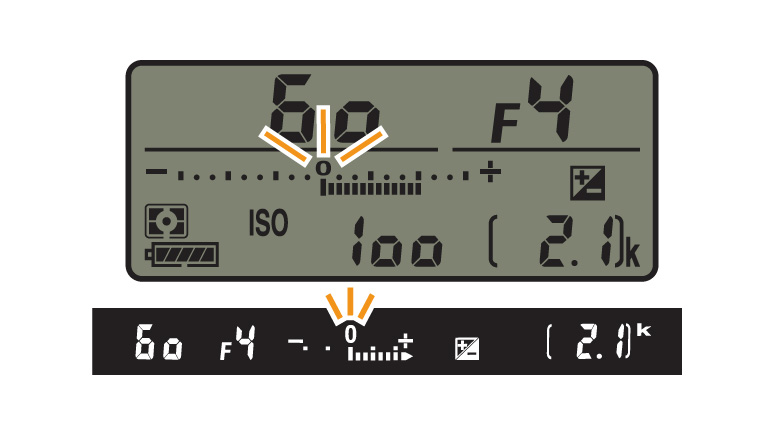Exposure Compensation
"Exposure compensation" is the act of deliberately altering exposure from the value suggested by the camera to make pictures brighter or darker. Although in P, S, and A modes, the camera automatically adjusts exposure, the value it selects may not always produce the results you intend. Everyone has her own preferences when it comes to exposure, and you may find that a brighter or darker image is closer to what you intend. If this is the case, use exposure compensation. Digital cameras let you view pictures as you take them, so view the results try again if they're not to your liking, adjusting exposure upwards or downwards for brighter or darker pictures.
Procedure

Choose from values between –5 EV (underexposure) and +5 EV (overexposure) in increments of 1/3 EV. In general, positive values make the subject brighter while negative values make it darker.

2: –0.3 (–1/3) EV
3: +2.0 EV

The current value for exposure compensation can be confirmed in the exposure indicator by pressing the
Normal exposure can be restored by setting exposure compensation to ±0. Except in SCENE and EFFECTS modes, exposure compensation is not reset when the camera is turned off (in SCENE and EFFECTS modes, exposure compensation will be reset when another mode is selected or the camera is turned off).




